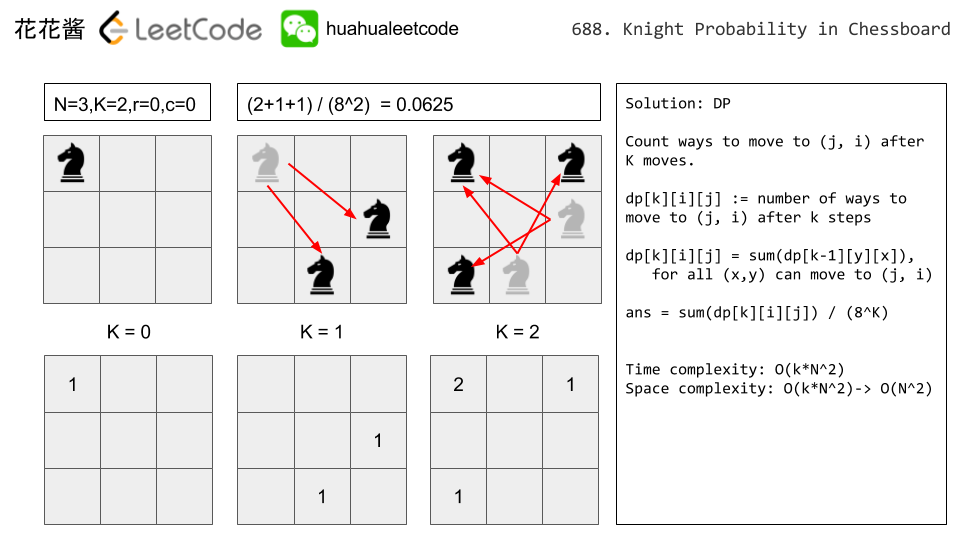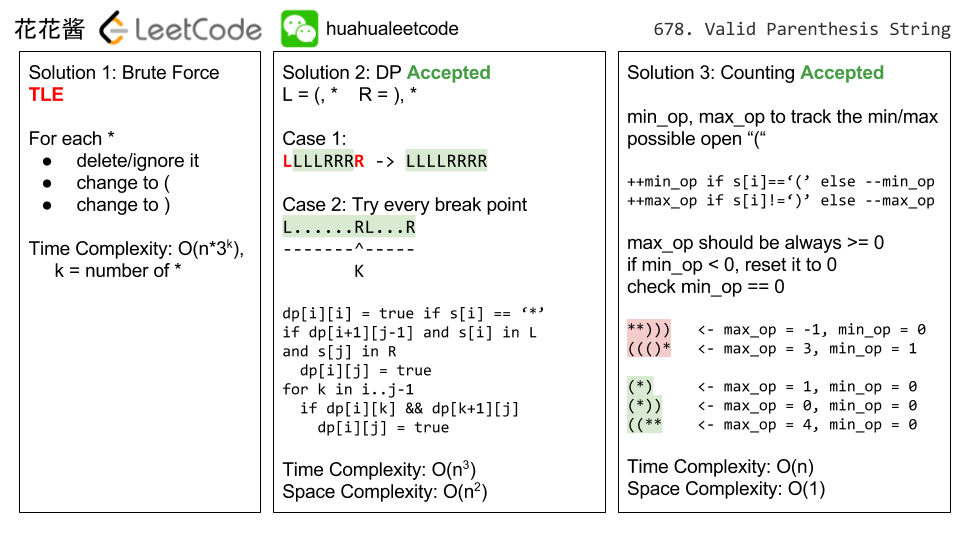Problem:
Given an array of integers nums, write a method that returns the “pivot” index of this array.
We define the pivot index as the index where the sum of the numbers to the left of the index is equal to the sum of the numbers to the right of the index.
If no such index exists, we should return -1. If there are multiple pivot indexes, you should return the left-most pivot index.
Example 1:
|
1 2 3 4 5 6 |
Input: nums = [1, 7, 3, 6, 5, 6] Output: 3 Explanation: The sum of the numbers to the left of index 3 (nums[3] = 6) is equal to the sum of numbers to the right of index 3. Also, 3 is the first index where this occurs. |
Example 2:
|
1 2 3 4 5 |
Input: nums = [1, 2, 3] Output: -1 Explanation: There is no index that satisfies the conditions in the problem statement. |
Note:
- The length of
numswill be in the range[0, 10000]. - Each element
nums[i]will be an integer in the range[-1000, 1000].
Idea:
DP
Solution:
C++
|
1 2 3 4 5 6 7 8 9 10 11 12 13 14 15 16 |
// Author: Huahua // Runtime: 43 ms class Solution { public: int pivotIndex(vector<int>& nums) { const int sum = accumulate(nums.begin(), nums.end(), 0); int l = 0; int r = sum; for (int i = 0; i < nums.size(); ++i) { r -= nums[i]; if (l == r) return i; l += nums[i]; } return -1; } }; |
Java
|
1 2 3 4 5 6 7 8 9 10 11 12 13 14 15 |
// Author: Huahua // Runtime: 133 ms class Solution { public int pivotIndex(int[] nums) { int sum = IntStream.of(nums).sum(); int l = 0; int r = sum; for (int i = 0; i < nums.length; ++i) { r -= nums[i]; if (l == r) return i; l += nums[i]; } return -1; } } |
Python
|
1 2 3 4 5 6 7 8 9 10 11 12 |
""" Author: Huahua Runtime: 112 ms """ class Solution: def pivotIndex(self, nums): l, r = 0, sum(nums) for i in range(len(nums)): r -= nums[i] if l == r: return i l += nums[i] return -1 |
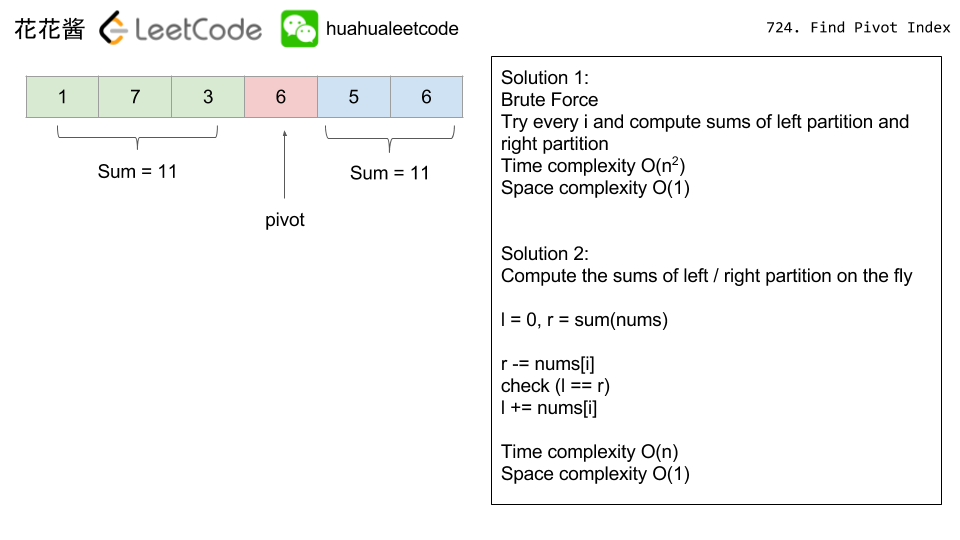
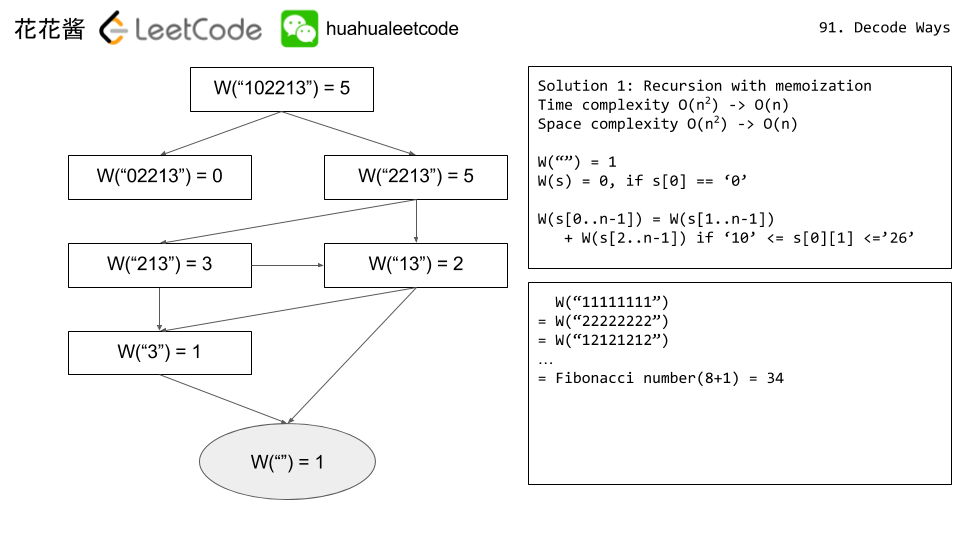
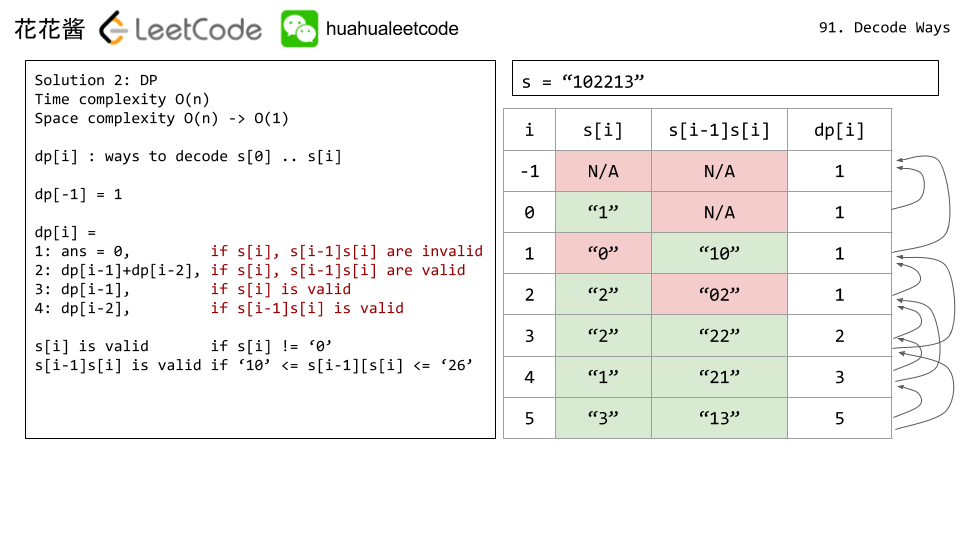
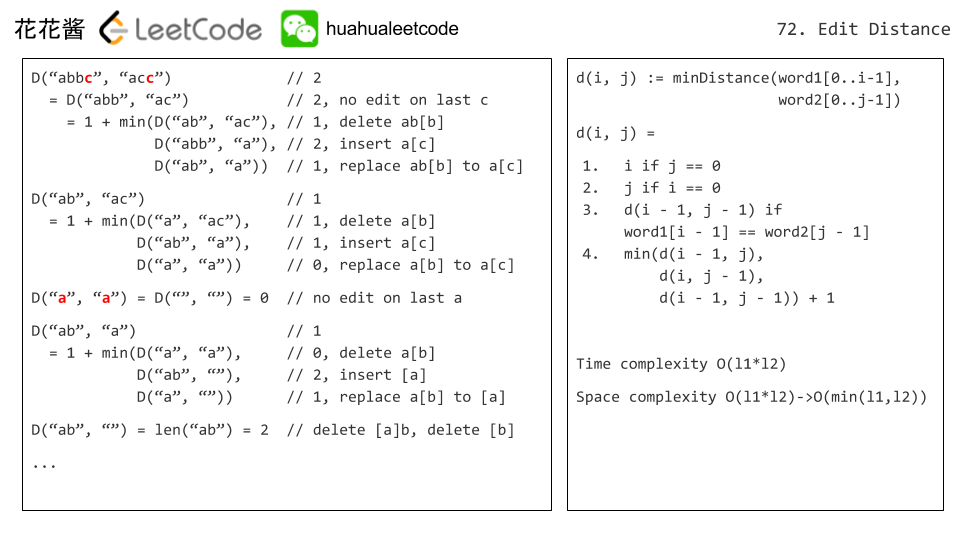
 Each time the knight is to move, it chooses one of eight possible moves uniformly at random (even if the piece would go off the chessboard) and moves there.
Each time the knight is to move, it chooses one of eight possible moves uniformly at random (even if the piece would go off the chessboard) and moves there.